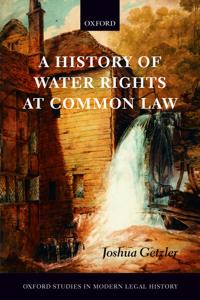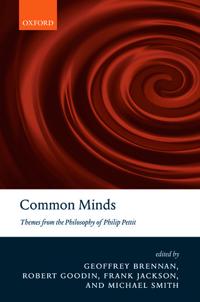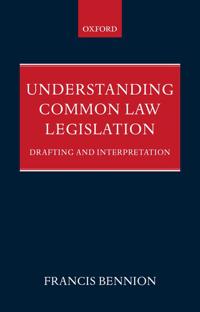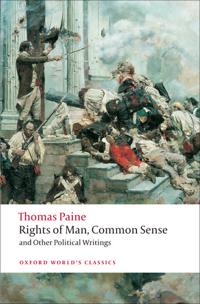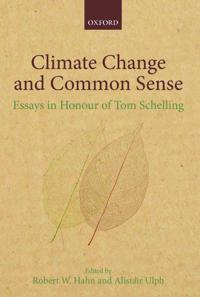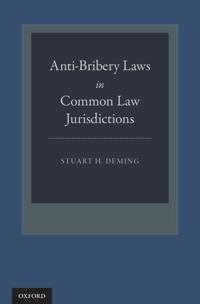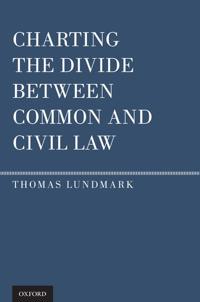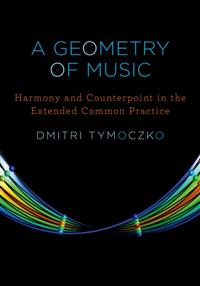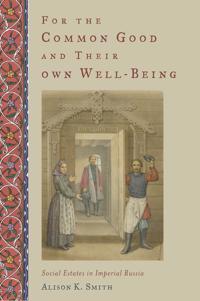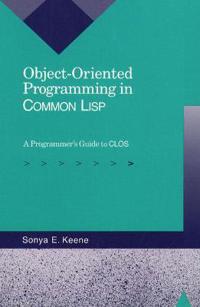The Clothing of the Common Sort, 1570-1700
ISBN: 9780198807049 - UTGIVEN: 2017-12Most histories of costume in early modern Britain concentrate on the clothing of the social elite - on the silks and embroidery worn by courtiers, aristocrats, performers, the metropolitan rich. These are both more likely to have been documented, and more likely to have survived in museum collection[...]
Common Law of International Adjudication, A (Inbunden)
avChester Brown
ISBN: 9780199206506 - UTGIVEN: 2007-09-06History of Water Rights at Common Law
ISBN: 9780199207602 - UTGIVEN: 2006-08Water resources were central to England's precocious economic development in the thirteenth and sixteenth centuries, and then again in the industrial, transport, and urban revolutions of the late eighteenth and early nineteenth centuries. Each of these periods saw a great deal of legal conflict over[...]
Common Minds (Inbunden)
avJo Franks
ISBN: 9780199218165 - UTGIVEN: 200705During a career spanning over thirty years Philip Pettit has made seminal contributions in moral philosophy, political philosophy, philosophy of the social sciences, philosophy of mind and action, and metaphysics. His many contributions would be remarkable enough in themselves, but they are made all[...]
Diverse Response to Common Challenges (Inbunden)
avFritz W. (EDT) Scharpf, Vivien Ann (EDT) Schmidt, Fritz W. (EDT) Scharpf
ISBN: 9780199240913 - UTGIVEN: 2001-03In this ground-breaking, two-volume study of the adjustment of advanced welfare states to international economic pressures, leading scholars detail the wide variety of responses in twelve countries. Rejecting any notion of convergence to some kind of neo-liberal orthodoxy, they find that most countr[...]
Understanding Common Law Legislation
ISBN: 9780199247776 - UTGIVEN: 2002-01There are many countries that use and apply the common law, which collectively may be called the common law world. A feature of this world is that nowadays it largely operates through statutes enacted by a country's democratic legislature, and that these mainly fall to be construed according to a un[...]
EC Common Fisheries Policy (Inbunden)
ISBN: 9780199275847 - UTGIVEN: 2010-03The Common Fisheries Policy (CFP) is one of the longest established and more controversial of the common policies of the EC. It deals principally with the management of fishery resources, relations between the EC and third States in fisheries matters, the marketing of and trade in fishery products, [...]
Lives in Common: Arabs and Jews in Jerusalem, Jaffa and Hebron (Inbunden)
avMenachem Klein
ISBN: 9780199396269 - UTGIVEN: 2014-11Most books dealing with the Israeli-Palestinian conflict see events through the eyes of policy-makers, generals or diplomats. Menachem Klein offers an illuminating alternative by telling the intertwined histories, from street level upwards, of three cities-Jerusalem, Jaffa, and Hebron-and their inte[...]
Rights of Man, Common Sense, and Other Political Writings (Häftad)
avThomas Paine
ISBN: 9780199538003 - UTGIVEN: 200811'An army of principles will penetrate where an army of soldiers cannot ...it will march on the horizon of the world and it will conquer.' Thomas Paine was the first international revolutionary. His Common Sense (1776) was the most widely read pamphlet of the American Revolution; his Rights of Man ([...]
Common Reading (Häftad)
avStefan Collini
ISBN: 9780199569793 - UTGIVEN: 200909In this series of penetrating and attractively readable essays, Stefan Collini explores aspects of the literary and intellectual culture of Britain from the early twentieth century to the present. Collini focuses on critics and historians who wrote for a non-specialist readership, and on the periodi[...]
The Unity Of The Common Law (Inbunden)
avAlan Brudner
ISBN: 9780199592807 - UTGIVEN: 2013-09-01A fully revised edition of Brudner's classic account of the foundational structures and rationale of private law. Brudner proposes a radical unification of formalist and functionalist understandings of the law. In doing so, he rethinks the foundations of tort, contract, property and unjust enrichmen[...]
The Book of Common Prayer (Häftad)
ISBN: 9780199645206 - UTGIVEN: 2013-07'In the midst of life we are in death.' The words of the Book of Common Prayer have permeated deep into the English language all over the world. For nearly 500 years, and for countless people, it has provided a background fanfare for a marriage or a funeral march at a burial. Yet this familiarity [...]
Common Goods And Evils? (Inbunden)
avAnja P. Jakobi
ISBN: 9780199674602 - UTGIVEN: 2013-07-04The book provides an up-to date account to global crime governance, containing in-depth case studies on money laundering, corruption, and human trafficking. It explains why the form of global governance - the institutional design - related to these cases differs widely.[...]
The Common European Sales Law in Context (Inbunden)
avJesus Manuel Martinez
ISBN: 9780199678907 - UTGIVEN: 2013-03European Contract Law unification projects have recently advanced from the Draft Common Frame of Reference (2009) to a European Commission proposal for an optional Common European Sales Law (2011) which is to facilitate cross-border marketing. This book investigates for the first time how CESL and D[...]
The EU Common Security and Defence Policy (Inbunden)
avPanos Koutrakos
ISBN: 9780199692729 - UTGIVEN: 2013-03Presenting the first analytical overview of the legal foundations of the EU's Common Security and Defence Policy (CSDP), this book provides a detailed examination of the law and practice of the EU's security policy. The European Union's security and defence policy has long been the focus of politica[...]
Climate Change and Common Sense (Inbunden)
avRobert (EDT) Hahn, Alistair (EDT) Ulph, Robert (EDT) Hahn
ISBN: 9780199692873 - UTGIVEN: 2012-04There is widespread agreement that climate change is a serious problem. If we fail to regulate greenhouse gases that contribute to global warming, or use alternative strategies for addressing the problem, the damages could be significant, and perhaps catastrophic. After several international meeting[...]
Oxford Guide to the Book of Common Prayer A (e-bok)
avHEFLING CHARLES
ISBN: 9780199723898This is the paperback edition of the first ever, comprehensive guidebook to the original Book of Common Prayer and all of its descendents throughout the world.[...]
Anti-Bribery Laws in Common Law Jurisdictions (Inbunden)
avStuart H. Deming
ISBN: 9780199737710 - UTGIVEN: 2014-07Anti-Bribery Laws in Common Law Jurisdictions provides a comprehensive analysis of the foreign bribery laws, related laws, and regulations in all of the major common law jurisdictions. This book extensively addresses the official guidance associated with the Foreign Corrupt Practices Act (FCPA), the[...]
Charting the Divide Between Common and Civil Law (Inbunden)
avThomas Lundmark
ISBN: 9780199738823 - UTGIVEN: 201209What does it mean when civil lawyers and common lawyers think differently? In Charting the Divide between Common and Civil Law, Thomas Lundmark provides a comprehensive introduction to the uses, purposes, and approaches to studying civil and common law in a comparative legal framework. Superbly orga[...]
Shakespeare's Common Prayers (Inbunden)
avDaniel Swift
ISBN: 9780199838561 - UTGIVEN: 2012-11-22A fascinating and highly orginal exploration of Shakespeare's great overlooked source, the Book of Common Prayer[...]
Geometry of Music: Harmony and Counterpoint in the Extended Common Practice
ISBN: 9780199887507 - UTGIVEN: 2011-02How is the Beatles Help! similar to Stravinskys Dance of the Adolescents? How does Radioheads Just relate to the improvisations of Bill Evans? And how do Chopins works exploit the non-Euclidean geometry of musical chords? In this groundbreaking work, author Dmitri Tymoczko describes a new framew[...]
For the Common Good and Their Own Well-Being
ISBN: 9780199978175 - UTGIVEN: 2014-11Every subject of the Russian Empire had an official, legal place in society marked by his or her social estate, or soslovie. These sosloviia (noble, peasant, merchant, and many others) were usually inherited, and defined the rights, opportunities, and duties of those who possessed them. They were al[...]
Object-Oriented Programming in Common LISP: A Programmer's Guide to Clos (Häftad)
avSonya Keene
ISBN: 9780201175899 - UTGIVEN: 198901Common Cause, The: Postcolonial Ethics and the Practice of Democracy, 1900-1955 (Inbunden)
avLeela Gandhi
ISBN: 9780226019871 - UTGIVEN: 2014-04-04Common Cause, The: Postcolonial Ethics and the Practice of Democracy, 1900-1955 (Pocket)
avLeela Gandhi
ISBN: 9780226019901 - UTGIVEN: 2014-04-04



